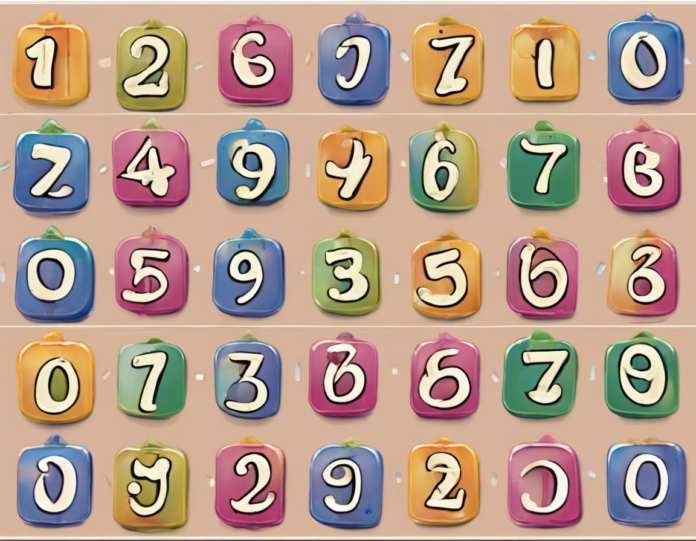Introduction
Counting is a fundamental skill in any language, and in Hindi, the official language of India, it is no different. Learning to count in Hindi can be both fun and rewarding, especially if you are looking to immerse yourself in the rich cultural heritage of the Indian subcontinent. In this comprehensive guide, we will explore the numbers 1 to 100 in Hindi and provide you with useful tips and tricks to master this essential skill.
Basics of Counting in Hindi
In Hindi, numbers are called “ank” (अंक) and are written in Devanagari script. To count from 1 to 10 in Hindi, you can start with the following numbers:
- One – एक (ek)
- Two – दो (do)
- Three – तीन (teen)
- Four – चार (chaar)
- Five – पाँच (paanch)
- Six – छह (chheh)
- Seven – सात (saat)
- Eight – आठ (aath)
- Nine – नौ (nau)
- Ten – दस (das)
Once you have mastered the basics, you can easily progress to counting from 11 to 20 by combining the numbers you have already learned. For instance, Eleven – ग्यारह (gyaarah) is a combination of “gyara” (eleven) and “ek” (one).
Tens in Hindi Numbers
Understanding tens in Hindi is crucial for counting beyond 20. Here are the Hindi words for the tens:
- Twenty – बीस (bees)
- Thirty – तीस (tees)
- Forty – चालीस (chaalis)
- Fifty – पचास (pachaas)
- Sixty – साठ (saath)
- Seventy – सत्तर (sattar)
- Eighty – अस्सी (assi)
- Ninety – नब्बे (nabbe)
To express numbers between 21 and 99, you typically combine the words for the tens with the unit digits. For example, Thirty-Five – पैंतालीस (pentaalees) combines “tees” (thirty) and “paanch” (five).
Hindi Numbers from 1 to 100
Now, let's explore the Hindi numbers from 1 to 100:
- One Hundred – सौ (sau)
- One Thousand – हज़ार (hazaar)
- Ten Thousand – दस हज़ार (das hazaar)
- One Lakh – एक लाख (ek lakh)
- Ten Lakh – दस लाख (das lakh)
- One Crore – एक करोड़ (ek karor)
You can use these building blocks to express any number from 1 to 100 in Hindi with ease.
Tips for Mastering Hindi Numbers
- Practice Regularly: Consistent practice is key to mastering Hindi numbers. Try to incorporate counting exercises into your daily routine.
- Use Flashcards: Create flashcards with Hindi numbers on one side and their English equivalents on the other to test yourself regularly.
- Engage in Conversations: Practice counting with native speakers or language exchange partners to improve your fluency.
- Listen to Hindi Songs: Listening to Hindi songs that involve counting can help you internalize the numbers effortlessly.
- Watch Hindi Movies: Watching movies or TV shows in Hindi can expose you to numbers used in real-life situations.
By incorporating these tips into your learning routine, you can enhance your proficiency in counting in Hindi significantly.
FAQs about Counting in Hindi
-
Q: What are the Hindi words for zero and one?
A: Zero is called “शून्य (shunya)” and one is called “एक (ek)” in Hindi. -
Q: How do you say 50 in Hindi?
A: Fifty is expressed as “पचास (pachaas)” in Hindi. -
Q: What is the Hindi word for a hundred?
A: One hundred is denoted by the word “सौ (sau)” in Hindi. -
Q: How do you count from 1 to 10 in Hindi?
A: The numbers from 1 to 10 in Hindi are: एक (ek), दो (do), तीन (teen), चार (chaar), पाँच (paanch), छह (chheh), सात (saat), आठ (aath), नौ (nau), दस (das). -
Q: What is the Devanagari script for the numbers in Hindi?
A: The Devanagari script is the writing system used for Hindi numbers, and it consists of characters representing each numeral.
In conclusion, learning to count in Hindi can be a rewarding experience that opens doors to a deeper understanding of Indian culture and language. By familiarizing yourself with the numbers from 1 to 100 and following the tips provided, you can enhance your proficiency in Hindi counting significantly. Practice regularly, engage with native speakers, and immerse yourself in the language to reap the benefits of your hard work.

